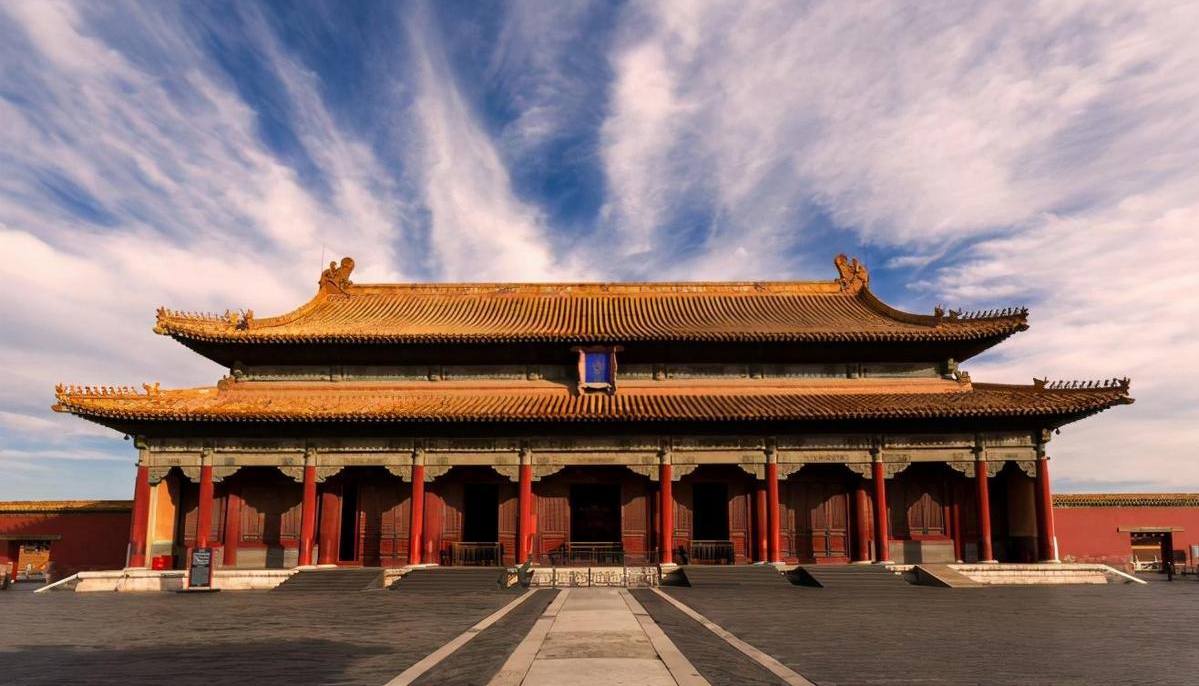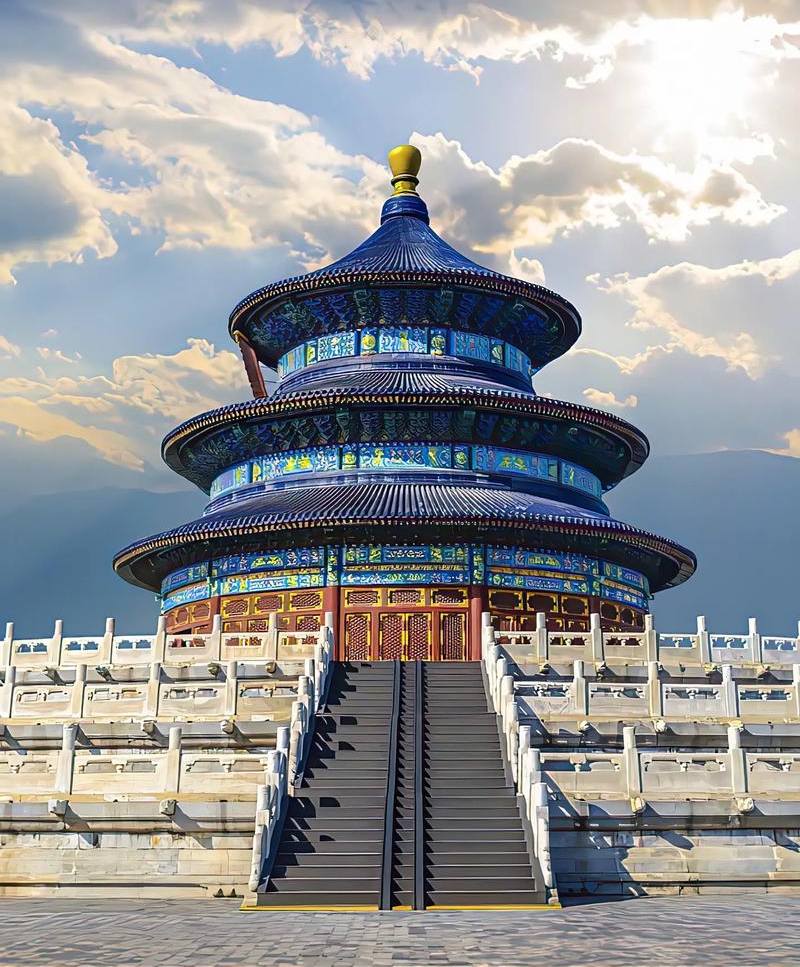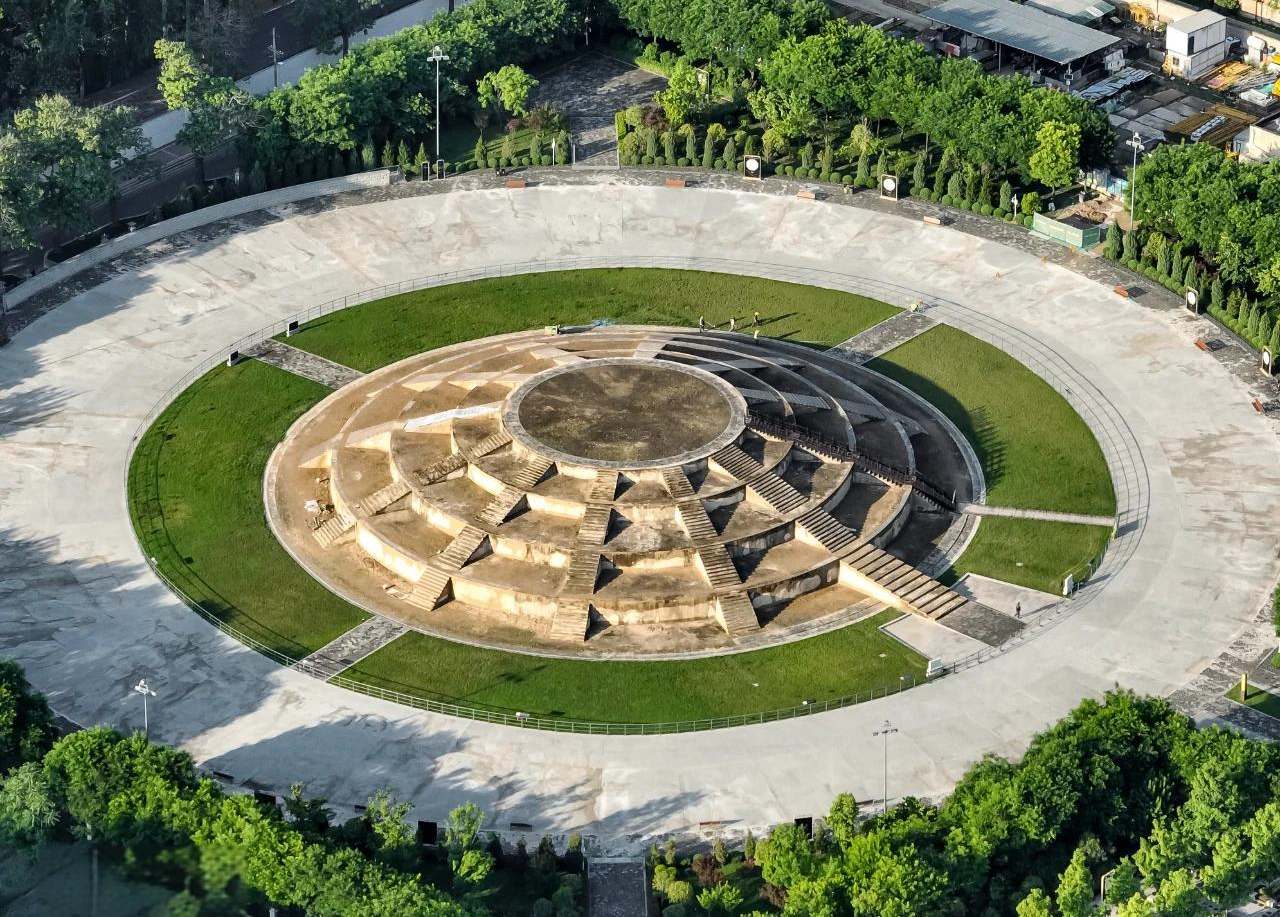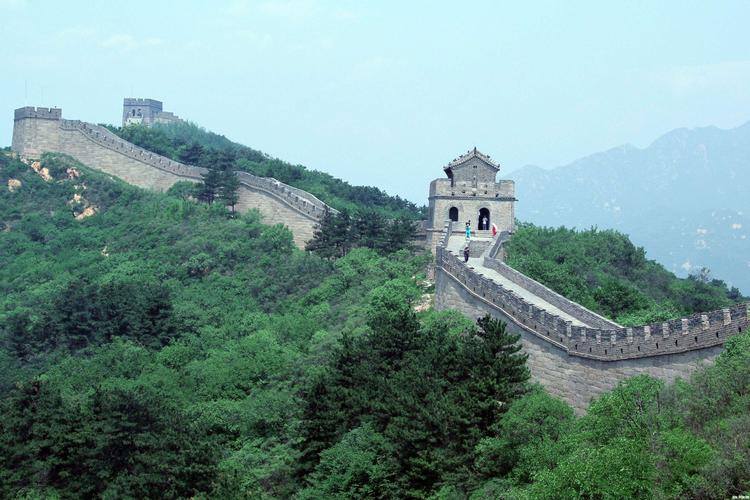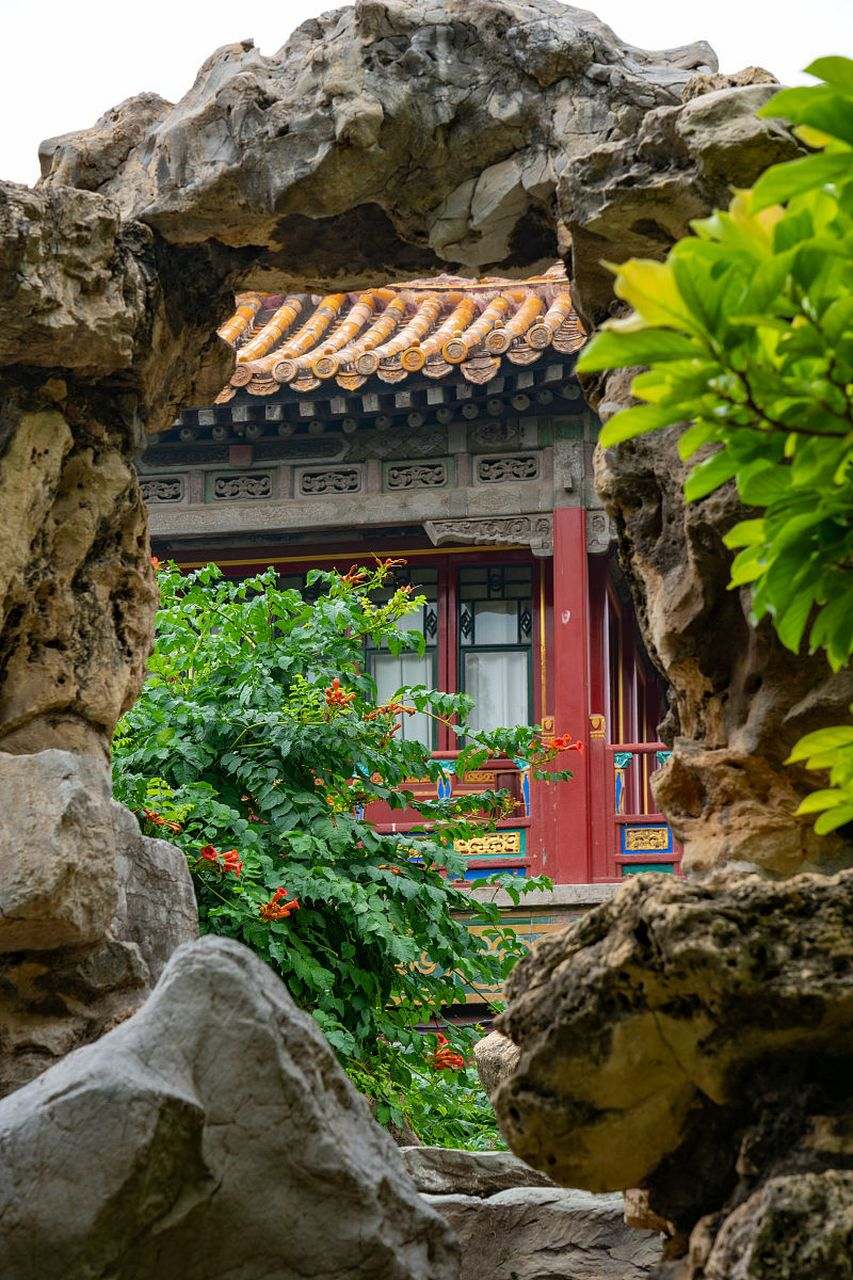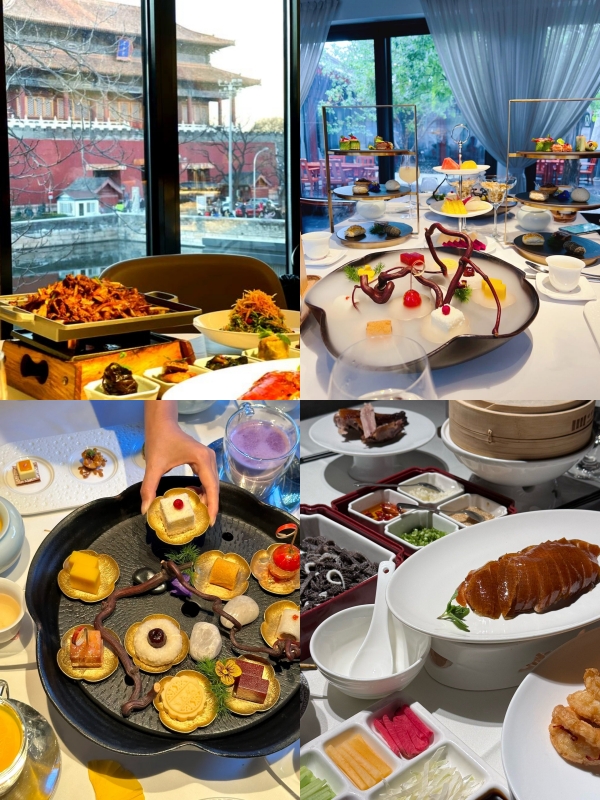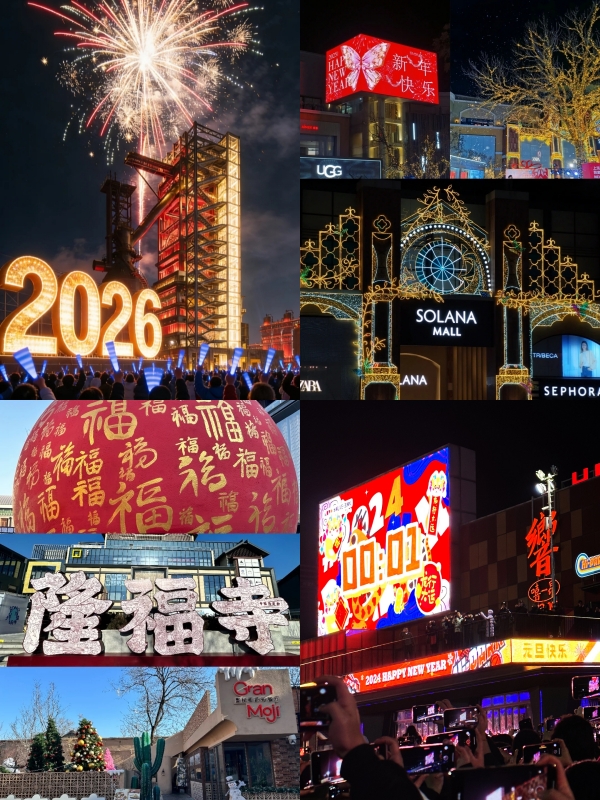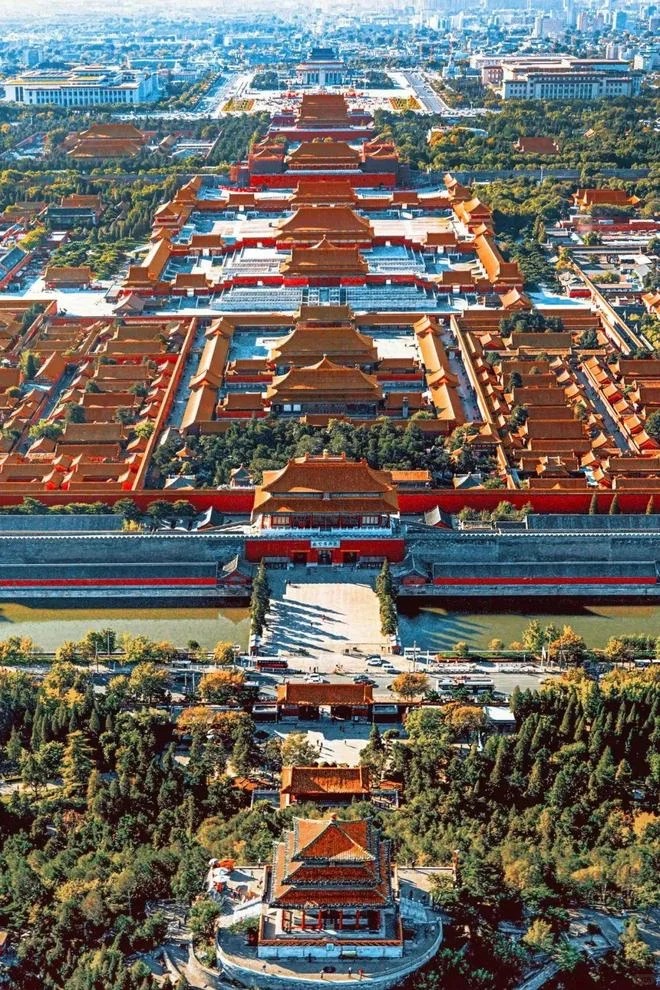Beijing has jarring contrasts for you straight out of the gate, and your first trip to the city can seem both thrilling and overwhelming. They stand alongside dazzling towers, next door to the life of hutongs, their narrow lanes bustling with chatter, bicycle bells and the aroma of fresh food. On my first visit, I stumbled from a teeming street into a quiet alley and felt I had entered a different realm. That combination of history and modern energy is what makes the city special, and you must always really see its landmarks when in Beijing.
So that your trip goes off without a hitch, concentrate on the sights that express its essence: roam through centuries-old imperial palaces that are full of stories, climb the Great Wall to have the mountain wind buffet your face, and sample Peking Duck or a steaming bowl of zhajiangmian. Throw in a rickshaw ride into the hutongs and an evening at a bustling night market, and you can sense the pulse of everyday life. This guide does just that – compiling the must do in Beijing experiences that both first-time visitors and travelers can easily jump into and take home as memories to last a lifetime.
Visiting Must-Do Historical Icons in Beijing
Forbidden City- The Classic To Do in Beijing
Cross the threshold of the Forbidden City, and enter thousands of years of history. Twenty-four Ming and Qing dynasty emperors once lived behind red walls and golden roofs. For the first-time visitor, passing through the Meridian Gate into the endless courtyards is an early taste of any rite of passage Beijing trip. I miss the sound of boots clattering on streets of stone and the silence of the morning, before the people came. That alone makes me understand why this is on every top things to do in Beijing list.
For your first visit, ease up. Concentrate on the Hall of Supreme Harmony, the Palace of Heavenly Purity and the ornate carvings and painted ceilings that look to breathe. Tickets are around 60 RMB during the peak season or 40 RMB in winter, and hours of operation are from 8:30 a.m. to 5:00 p.m. (closed Mondays). I had once hit there just as the sun was illuminating the golden rooftops and it had felt like I was witnessing history in progress. Every corner holds another story. After your viewing time here perhaps then you would appreciate the size and imagination that makes this palace one of the best on the list of must do in Beijing!
The Great Wall - Badaling and Mutianyu for First Timers
When you hike the Great Wall, that’s when you finally feel like you’ve flown into China.” The Badaling and Mutianyu sections are the most accessible for first-time travelers, featuring clear-cut paths, signs and panoramic views. As one walked the ridges you felt the wall’s vastness spilling into these valleys. It’s more than sightseeing — it’s a must-do in Beijing that connects you to centuries of history. I remember one fall day in Badaling, the cold wind on my face as the mountains went on and on.
Badaling is busy but extremely accessible by bus or train. Mutianyu seems more tranquil, shrouded in forest and with quieter paths. ADMISSION Tickets are half price at Badaling, around 40 RMB, and 45 RMB at Mutianyu, and the wall is open from 7:30 a.m. to 5:30 p.m. One late afternoon, I watched the wall glow gold against the setting sun, and it joined my cherished must-do hearth memories of Beijing.
Planning a hike on the Great Wall but not sure where to begin? Read The Best Great Wall Hiking Routes in Beijing: Tips & Camping Guide (2025)
Temple of Heaven – The Rituals and Culture for First Timers
The Temple of Heaven combines grandeur of design with significance of religious content. Perfectly symmetrical and adorned with bright blue tiles that draw you in, enter the Hall of Prayer for Good Harvests and take a moment to envision emperors beseeching the heavens for good fortune. And standing there I could hear the hushed infirm whispers of ritual chants. Just that fact alone puts it squarely in the “top 10 things to do in Beijing” places.
A pair of playful touches, the Circular Mound Altar and Echo Wall, also enhance the experience. You may want to test the acoustics; let someone stand on the central stone, and feel as if he or she is in some ancient chorus. Tickets are approximately 30 RMB, and the park is open from dawn through late evening, though the halls close at around 1700 hours. I visited just before sunset, and watched the sky turn pink as I towered over the temple, an image I still vividly remember.
Planning your first trip to China’s capital and don’t know where to start? Read The Best Things to Do in Beijing: Top Attractions for 2025
Exploring Must-Do Modern Landmarks in Beijing
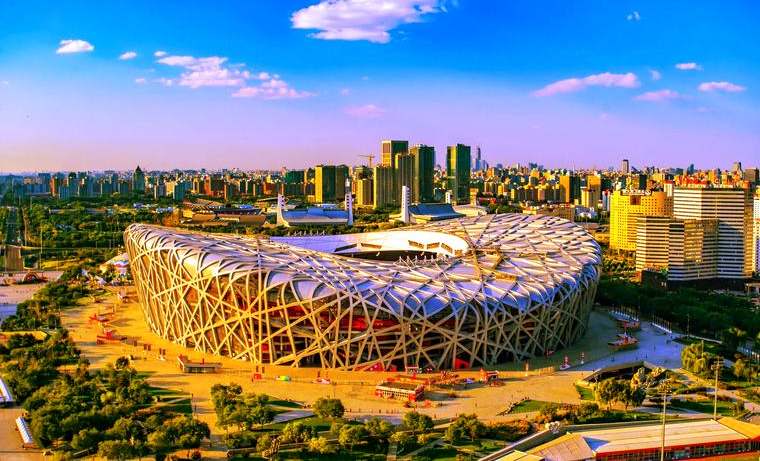
Bird's Nest
Olympic Park and Bird's Nest – A Must Do Photo Spot
The Bird's Nest and Water Cube are modern icons. Olympic Park is free to enter, open till about 9:00 p.m., with tickets to go inside costing 50–80 RMB. By day, plazas shine under the sun. At night, lights glow across pools, creating a festive mood. I visited one summer evening, families splashing by fountains while the Bird’s Nest lit up. That memory alone earns it a spot on the must do in Beijing list.
The Bird's Nest impresses with its steel lattice, while the Water Cube sparkles like blue bubbles. Together, they capture the spirit of the 2008 Games. For newcomers, seeing them is more than sightseeing—it’s a modern chapter of the city’s must do in Beijing experiences.
National Museum of China – Art and History for First Timers
The National Museum of China stands right on Tiananmen Square and offers a vast journey through the country’s past. First-time visitors can move from ancient bronzes and jade carvings to modern revolutionary exhibits, seeing thousands of years of culture under one roof. Entry is usually free with a passport, and the museum opens from 9:00 a.m. to 5:00 p.m. I remember my first walk through its grand halls, feeling small among giant stone statues and intricate artifacts that told China’s story in detail.
The museum is not only about history but also hosts world-class art shows and cultural events. Bright galleries mix ancient relics with modern installations, and the variety keeps you exploring for hours. On my visit I stopped for coffee in the atrium, surrounded by students sketching exhibits, and it gave me a sense of Beijing as both timeless and creative. For anyone new to the city, the National Museum is a cultural must do in Beijing that connects the past with today.
Afraid of making a cultural faux pas on your trip? Check Chinese Etiquette: Essential Tips, Rules, and Real Experiences for Travelers
Trying Must-Do Everyday Experiences in Beijing
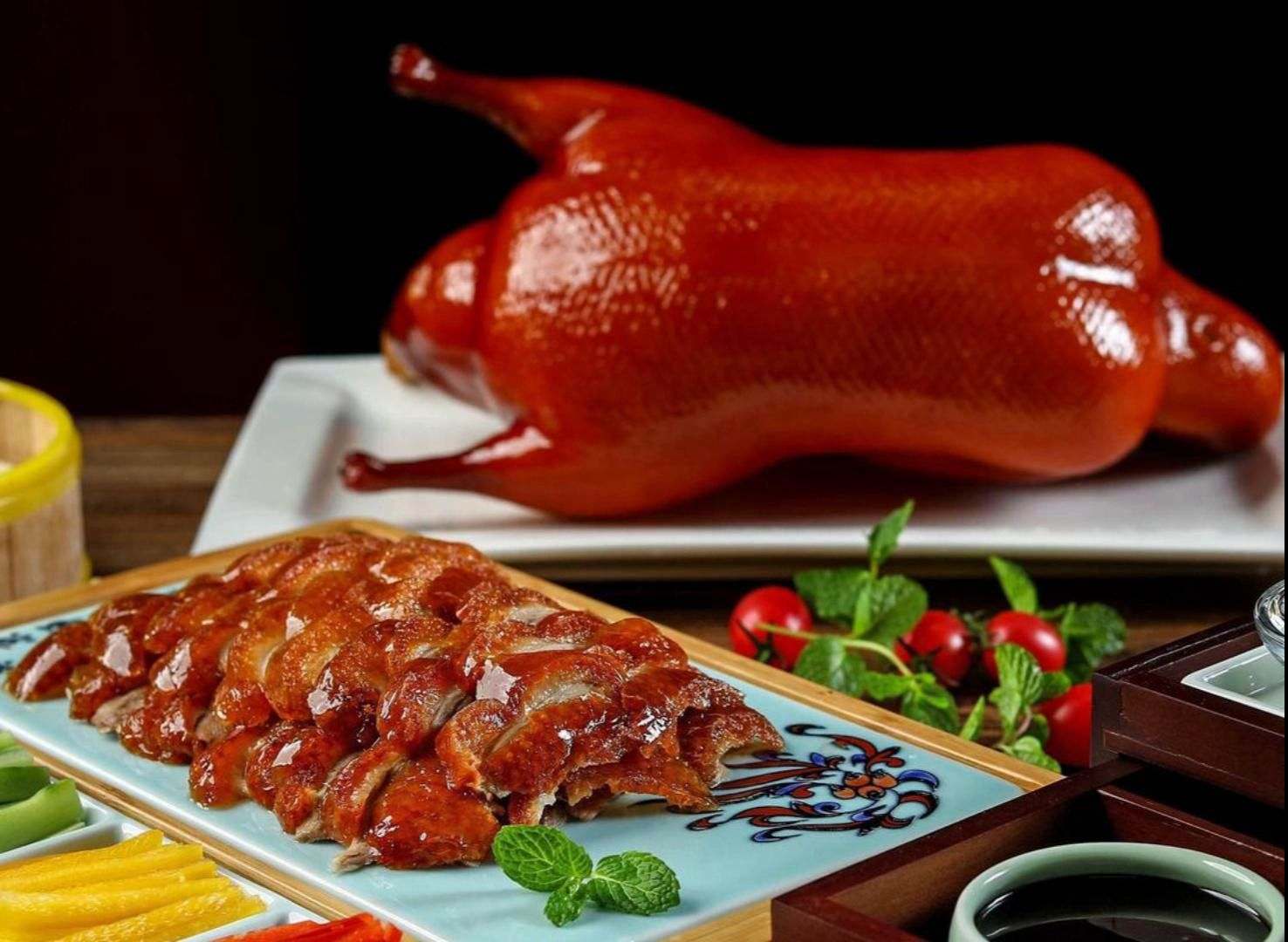
Peking Duck
Hutongs and Rickshaw Rides – Touch Old Beijing With a history of over 500 years, hutongs are representative of old Beijing.
The ride in a rickshaw through hutongs is like stepping through a time warp. Courtyard houses, a pomegranate tree or two and neighbors chatting on doorsteps offer a window into everyday living. Tours typically cost 50-80 RMB and run from late morning to evening. I can still feel the wind on my face as the driver pedaled through the alleyways, and that’s when I realized this is one of those quintessential must do in Beijing experiences for newbies.
The hutongs reveal contrasts too. A hip cafe next to a gray brick courtyard, kids racing past ancient walls, laughter overlaying the sputtery creak of bikes. It is that blend of past and present that makes the ride memorable and explains why visiting hutongs is a must do in Beijing kind on list.
Peking Duck – One Meal You Wont Want to Miss in Beijing
Roast duck is not merely food here — it is tradition and pride. For first-timers, sitting down at Quanjude or Da Dong is an occasion. You see the chef gently carve a single crisp slice, you hear the skin crackle, and you wrap each piece in a warm, thin pancake with sweet sauce. A whole duck is approximately 260RMB and opening hours for most of the restaurants are from 12pm to 10pm. I remember the warm wash of the dining hall and thick aroma of the golden duck that met me on my first visit.
The dish was once the exclusive domain of emperors, but today anyone can bask in its flavor. Eating with friends, laughing as we reached for the crispiest slice, was like being woven into Beijing’s living story. For many visitors this dish is not a choice, but a necessity- one of the must-do in Beijing highlights. The taste, the act of carving, the history all merge in a way that makes it a meal to remember.
In addition to the famous restaurants, you can find tiny local places that serve up their own versions. Some are leaders purveying half ducks for roughly 130 RMB, ideal for couples or loners. The contrast of crisp skin and tender flesh just drives it home, no matter what you do. And from the very first bite the reason why Peking Duck is a perennial must do in Beijing is immediately clear.
Craving a deep dive into Beijing’s flavors and street eats? Start with Your Guide to an Unforgettable Beijing Food Tour
Night Markets – Street food and a vibrant vibe
The Wangfujing and Gui Jie night markets hum alive. Stalls open at sunset and go until midnight, offering everything from 10 RMB skewers to sizzling hotpots. The fluorescent light that fills the streets outside stands in contrast to the smell of roasting lamb and the sight of candied hawthorn, and it’s unclear which world one is in. First timers, this is not just food, this is a cultural must do in Beijing.
Night markets bring people together. Locals and tourists eat shoulder to shoulder, exchanging stories between spicy, sweet and savory bites. One of the times I bit into tanghulu, a street musician was playing nearby and the moment just felt electric. It remains a solid must do in Beijing, with experiences like that.
Enjoying Must-Do Nature and Leisure in Beijing
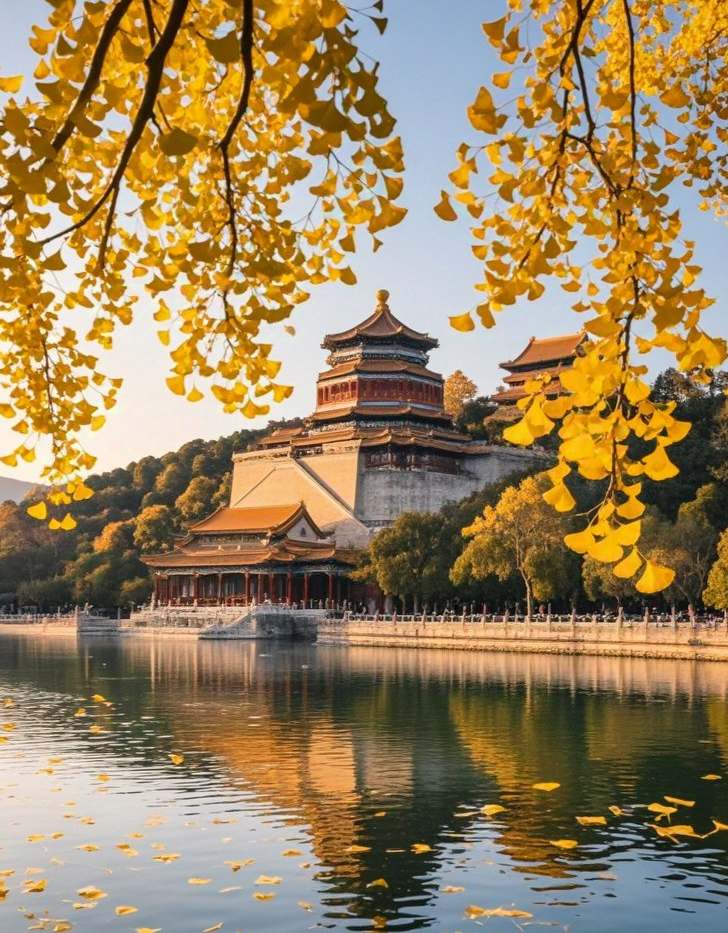
Summer Palace
Summer Palace – A Lakeside Must Do
The Summer Palace feels like Beijing’s backyard. Kunming Lake reflects willows, while Longevity Hill rises above. Strolling the Long Corridor with painted beams brings a sense of calm. Tickets cost 30 RMB, and the grounds open from 6:30 a.m. to early evening. I once arrived at dawn, mist hanging over the lake, and the quiet made me feel like I had the place to myself. That memory alone made me realize why the Summer Palace is on every must do in Beijing list.
Later in the day, locals paddle boats, families wander paths, and tai chi groups move gracefully under the trees. Climbing Longevity Hill at sunset, I looked out at the golden glow on the lake and knew it was one of the most peaceful must do in Beijing experiences.
Fragrant Hills – Seasonal Beauty for First Time Travelers
Fragrant Hills bursts with color in autumn, slopes glowing red with maple leaves. Walk the trails and you’ll smell pine on the breeze and hear cameras clicking as photographers line up. Tickets are about 10 RMB, and the park runs from early morning to dusk. I went one October afternoon and the sight of red hills against the setting sun felt almost magical.
Other seasons have their charm too. Spring blossoms, shady summer trails, and winter snow give it year-round appeal. Reaching the peak for sweeping city views brought a cool rush of wind, and I thought to myself: this is one of the most refreshing must do in Beijing moments.
Practical Tips for First Time Visitors
Money, Payments, and Connectivity
- Keep some cash in RMB, as smaller stalls may not accept cards.
- Link your international Visa, MasterCard, or JCB to Alipay or WeChat Pay before you go. The apps now support overseas cards, which makes buying tickets or food much smoother.
- Download the Alipay and WeChat apps in advance and switch to English in the settings. Both work well for paying in shops, hailing taxis, and even renting bikes.
- Grab a local SIM card or portable Wi‑Fi at the airport. Having data makes it easier to use Baidu Maps, MetroMan, and translation apps on the go.
Packing and Daily Essentials
- Comfortable walking shoes are key since the Great Wall and palace courtyards involve long walks.
- A refillable water bottle is handy. Many parks and stations have safe refill spots.
- Even in warmer months, evenings can cool down fast, so a light jacket helps. In winter, pack gloves and a scarf, especially if you plan to visit the Wall.
Cultural Awareness
- Learn a few simple Mandarin phrases. A friendly “ni hao” or “xiexie” goes a long way.
- Show respect in temples and historic sites by keeping your voice low and not touching relics.
- Queuing is important in Beijing, so stand patiently and follow the line.
Food and Dining
- Street food is part of the adventure. Look for busy stalls with quick turnover to ensure freshness.
- Dinner hours are earlier than in many Western cities, often between 6:00 and 8:00 p.m.
- In crowded restaurants, sharing a table with strangers is common. Use translation features in WeChat or Baidu Translate to order if menus are only in Chinese.
FAQs for First-Time Visitors: Your Beijing Must-Do's
Q: When is the best time for my first trip to Beijing?
Spring (April–May) and autumn (September–October) are best. Anticipate temperate temperatures, blossoms and clear skies. The leaves turn to gold in Beihai and glistening red in Fragrant Hills in autumn. Summers are hot and crowded, while winters are cold but calm with fewer visitors. Upon my first visit, I arrived in October and the cool air and golden hills showed me why picking the right season is 100 percent a must do in Beijing.
Q: How many days do you need to visit the must do in Beijing?
Three full days give you the overview. One day to see the Forbidden City and Temple of Heaven, another for the Great Wall and 798, and a third for the Summer Palace, hutongs and food. For five days, add-on the National Museum, Olympic Park or a day trip to Chengde. I stayed for five days, and the slow pace allowed me to savor every detail. Too much time is a must in Beijing.
Q: First-time travelers: Will I be able to get by without speaking any Chinese?
Yes, you can. Landmarks have English signs and apps like Google Translate or Baidu Maps are not without use. Many hotel employees and most baby-faced locals speak some English. The first time I visited, a student pointed me toward the correct metro line after I showed him my phone, and the city suddenly felt friendlier. Pack the address of your hotel written in Chinese for taxis. For in Beijing, it is imperative to connect.
Q: What are the first-time must-eat food?
Peking Duck comes first, and it’s not just a meal — it’s a cultural experience. A whole duck, including with pancakes and sweet sauce, is about 260 RMB. I recall the skin crunching and the aroma that filled the room. Also check out jianbing crepes in the morning, zhajiangmian noodles at lunch, and tanghulu during winter nights. Sampling the local flavors that you will encounter is almost one of the tastiest must do in Beijing explorations.
Q: For first-timers, what’s the easiest way to get around?
The subway is both the cheapest and easiest – prices start at 2 RMB, and the doors are open from morning to past midnight. Didi is easy for going further from stations, and walking in the hutongs lends another aspect of the city. It’s fun to take a shared bike for a short ride if you’re comfortable navigating traffic. On my inaugural visit, I combined metro and Didi here, which was both time and effort saving. Knowing your way around transportation is a must do in Beijing for a hiccup-free trip.
Q: How to avoid peak crowds at the major sights?
Get there early, book online and steer clear of holidays such as Golden Week. Weekdays are calmer than weekends. At the Forbidden City, go in the north gate to avoid long lines. For the Great Wall, Mutianyu and Jinshanling are both more relaxed than touristy Badaling. During my first ascent at Mutianyu, I found myself able to stop and breathe mountain air. Hunt out quieter moments Quiet is a must do in Beijing for first timers.
